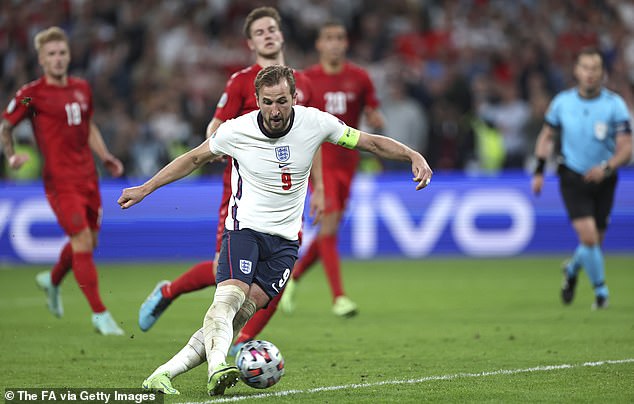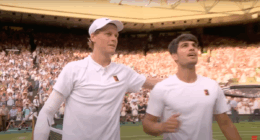Penalty rebounds could be scrapped entirely under dramatic new plans being considered by football’s law-makers – potentially coming into force in time for the 2026 World Cup.
The proposal, being discussed by the International Football Association Board (IFAB), would see any missed penalty immediately result in a goal-kick, with no chance for the taker or others to score on the rebound, as reported by The Sun.
That means iconic moments like Harry Kane’s extra-time rebound against Denmark in the Euro 2020 semi-final or Xabi Alonso’s equaliser in Liverpool’s legendary 2005 Champions League comeback would no longer stand under the proposed rules.
The idea is to treat a penalty as a single, standalone shot – much like a penalty stroke in hockey.
Once the kick is taken, play would stop. If the ball goes in, it’s a goal and the game restarts at the halfway line. If it doesn’t, it’s a goal-kick for the defending side – no corners, no second chances.
Officials believe it could help eliminate disputes over encroachment and remove an unfair advantage for the attacking team.

Penalty rebounds could be scrapped entirely under dramatic new plans being considered

The proposal would see any missed penalty immediately result in a goal-kick, with no chance for the taker or others to score on the rebound

The IFAB is also looking at allowing VAR checks for second yellow cards and corners
Currently, goalkeepers must have one foot on or behind the line, while attackers can pounce on rebounds, which some argue is a double punishment for defenders.
The potential law change is being considered as part of a wider review aimed at modernising the game, particularly ahead of the expanded 48-team World Cup in 2026.
Any new rules would need to be finalised by the end of February to be introduced in time.
Also on the table are plans to expand the scope of VAR. IFAB is looking at allowing video checks for second yellow cards and corners — but only when there’s a ‘unfair’ dismissals or ‘clear error’ that can be reviewed quickly, without further delays to the game.
Discussions over rules changed were during the recent Club World Cup in the US – with some senior figures now backing significant reform.
While the final decision is still months away, the momentum behind these changes is building fast, and fans could see a very different version of the game by the time the next World Cup kicks off.









